[The Violet Family in the Columbia River
Gorge of Oregon and Washington]
Canary Violet, Upland Yellow Violet, Yellow Montane Violet
Viola praemorsa ssp. praemorsa
Synonyms: Viola nuttallii ssp. praemorsa, Viola nuttallii var. praemorsa
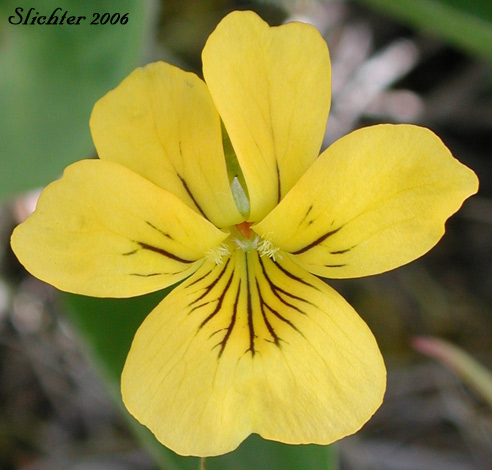 -
- 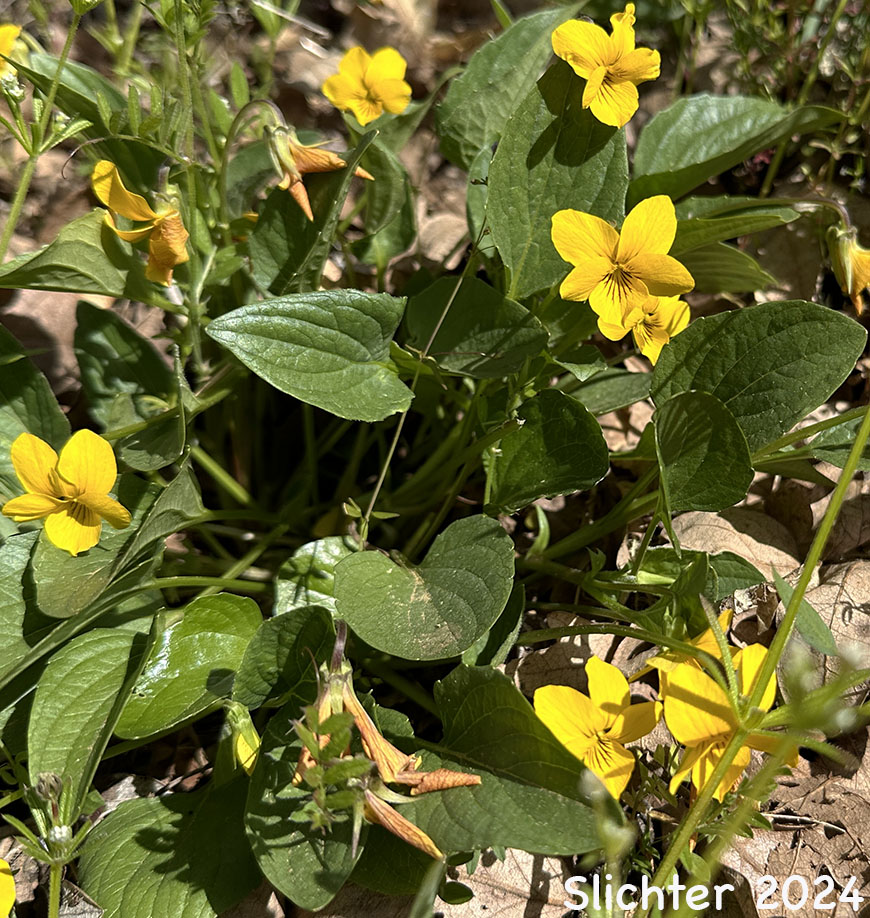
The photo at left shows a close-up of the flower of canary violet as seen high
in the Columbia Hills at the eastern end of the Columbia River Gorge..........May
1, 2005. The backs of the upper 4 petals appears to be solid yellow as seen
in other photos of this flower. The photo at right shows prairie violets in bloom in open oak woodlands along the Weldon Wagon Road Trail east of Husum, WA.....April 28, 2024.
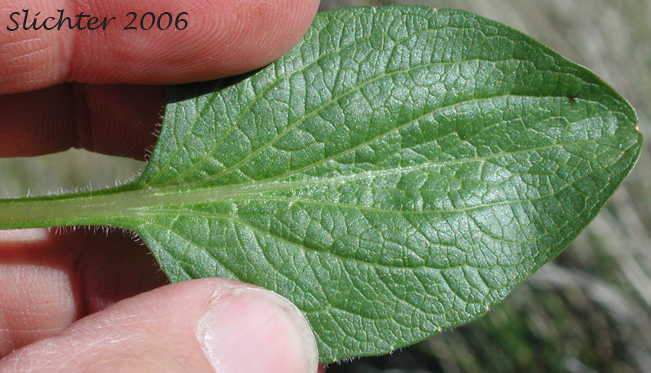 The
photo at right shows the wide leaf blade of canary violet from the crest of the Columbia Hills, north of Dallesport, WA........May 14, 2006. A closeup of the leaf is seen further below.
The
photo at right shows the wide leaf blade of canary violet from the crest of the Columbia Hills, north of Dallesport, WA........May 14, 2006. A closeup of the leaf is seen further below.
Characteristics:
*****This
is one that I will need to check in the field this spring as I am unsure of
the variety.
Yellow prairie violet is an attractive dryland
violet with clumps of green leaves and several bright yellow flowers found on
stems (to 15 cm high) that are about equal in height to the leaves. The leaf
blades range from smooth to copiously covered with minute hairs, the blades
narrowly elliptic lanceolate to ovate or lanceolate, depending on the variety.
The margins are entire or wavy-margined, or occasionally lightly toothed. The
blades range from 2-10 cm in length, while the long thin petioles range from
3-15 cm long.
The flowers are bright yellow, from 5-15 mm long
with a short spur. The upper 2 petals may be clear yellow on the back (as in
variety bakeri) or may have brownish backs (as in the other varieties).
The lower 3 petals are penciled with brownish-purple lines in the throat.
Habitat:
Yellow prairie violet may be found in open grasslands,
among sagebrush, or in open ponderosa pine or oak forests.
Range:
Yellow prairie violet is found east of the coastal
mountains from British Columbia south to California and east to the central
United States.
In the Columbia River Gorge, it may be found from
near Dog Mt east to the Columbia Hills and may be found between the elevations
of 400'-3900'.
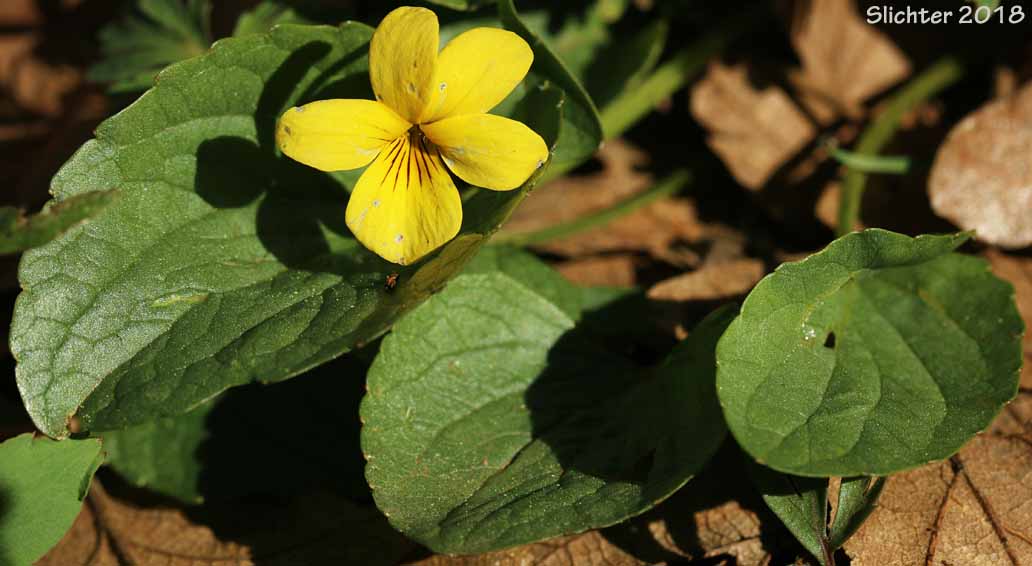
Yellow prairie violet blooming amongst oak leaves along the Weldon Wagon Road east of Husum, OR.......April 19, 2018.
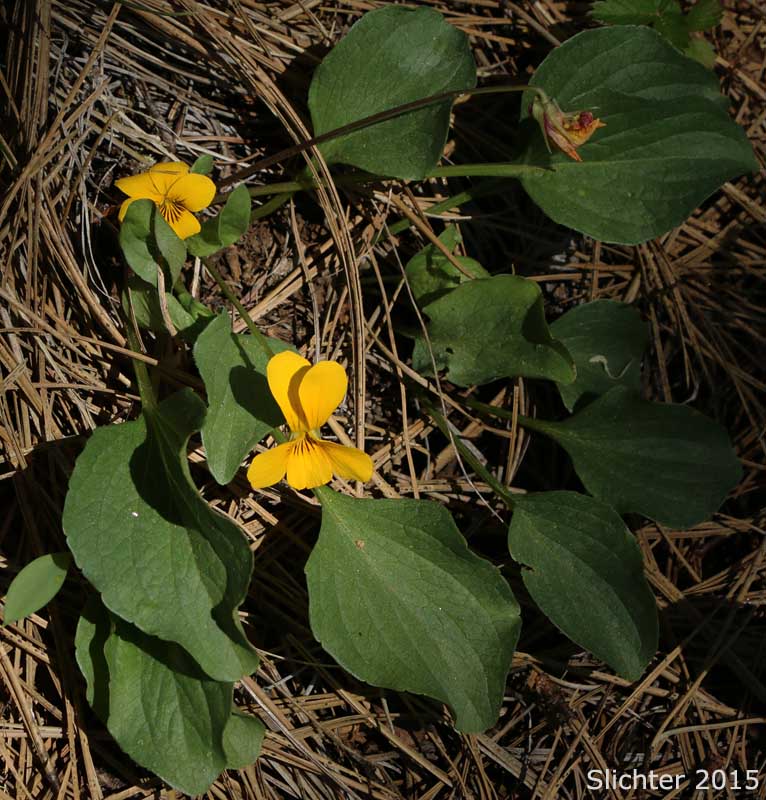 -
- 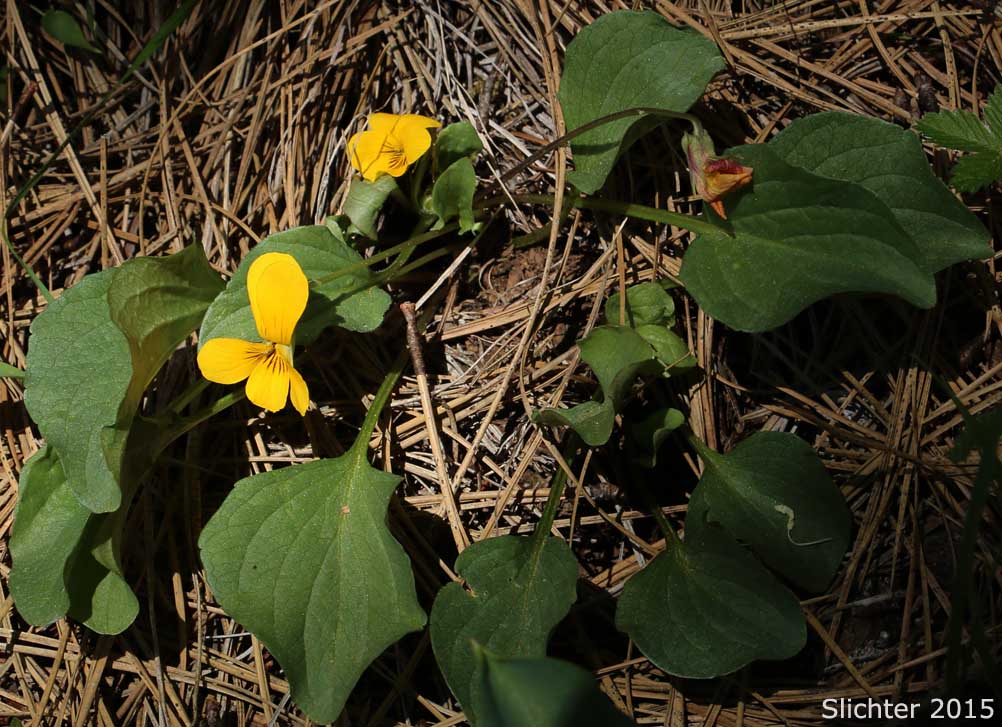
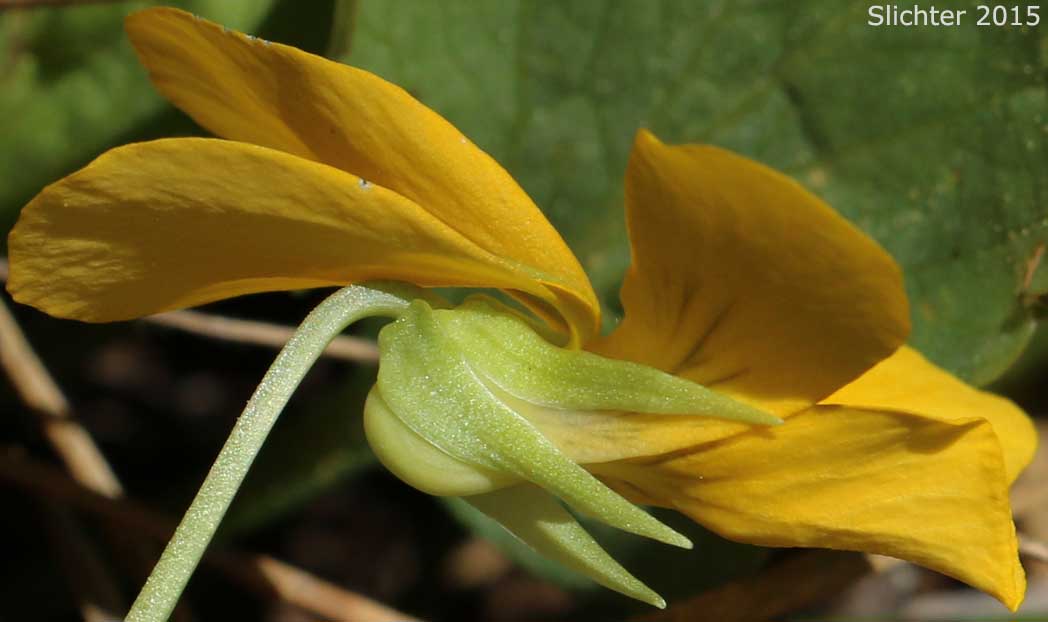 -
-  -
- 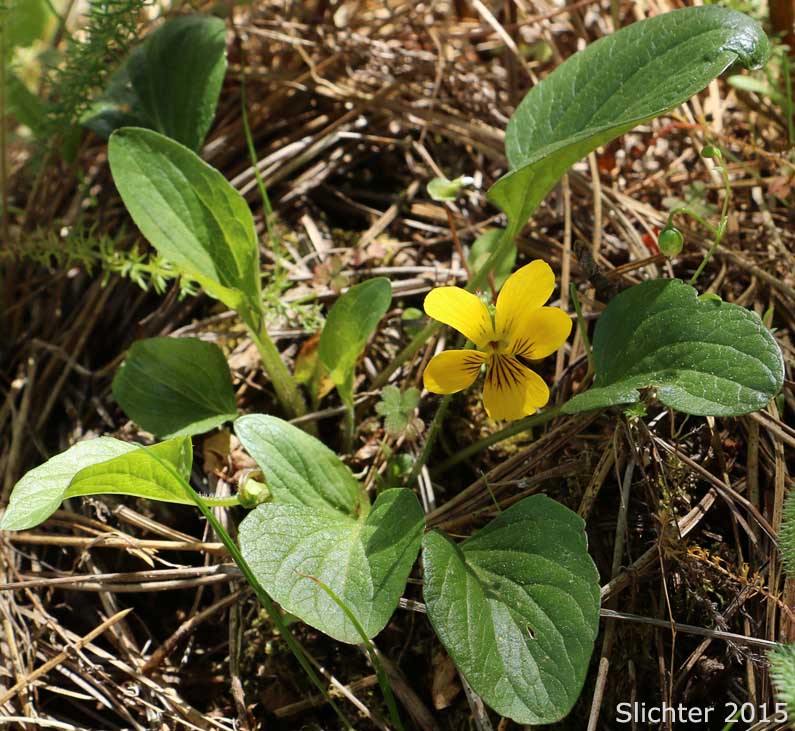
What appears to be Viola praemorsa ssp. praemorsa as seen in moist meadows along Rattlesnake Creek about one-quarter mile below the meadows at Pannikanick in western Klickitat County, Washington...........May 6, 2015.
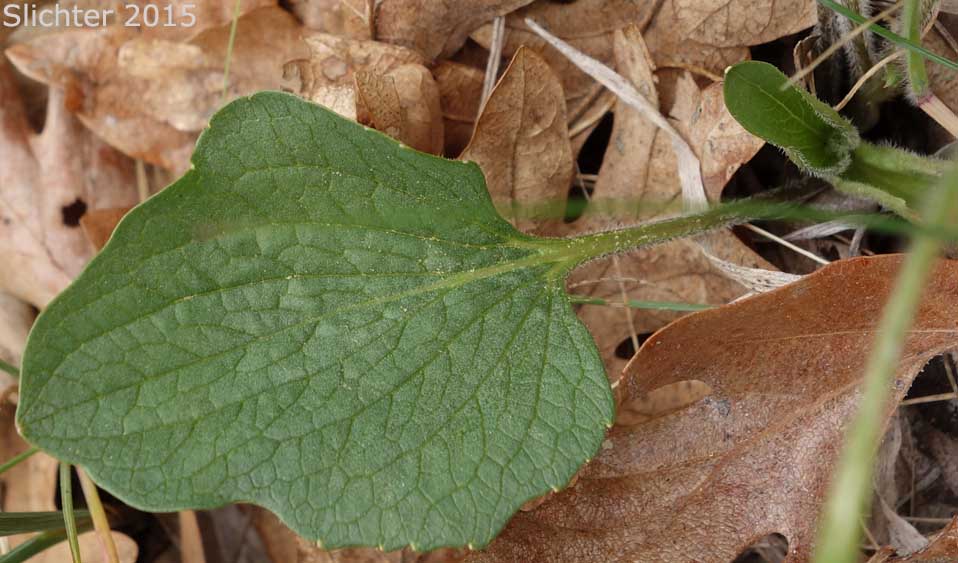 -
- 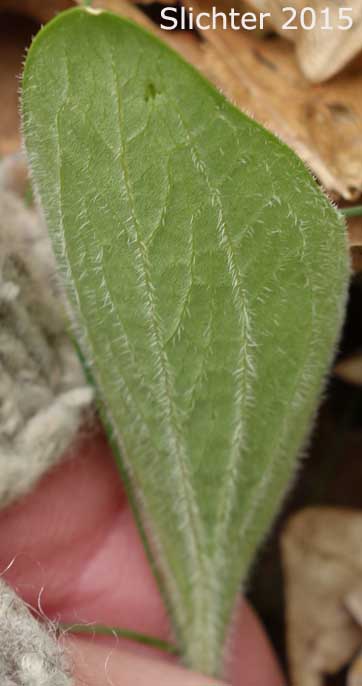
Leaves of what appears to be yellow prairie violet as seen under oaks high on the Margerum Ranch property, Columbia Land Trust lands in the middle Klickitat River drainage...........April 24, 2015. The leaf at left is more typical with a few rounded teeth on the margins with a truncate (squared off) base while the leaf at left may be more reminiscent of Viola praemorsa var. linguaefolia or V. bakeri with its tapered leaf base.
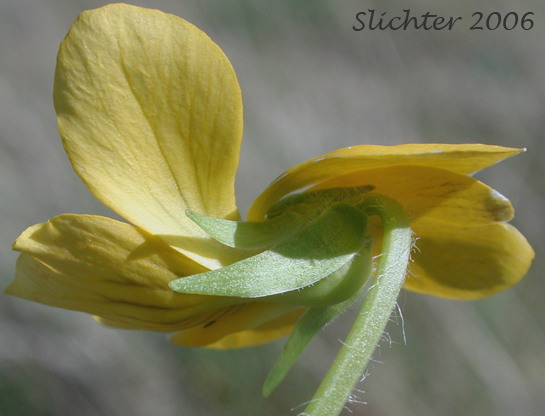
A close-up sideview of the flower of yellow prairie violet as seen from the crest of the Columbia Hills.........May 14, 2006. Note that the backs of the upper petals are yellow rather than rusty colored.
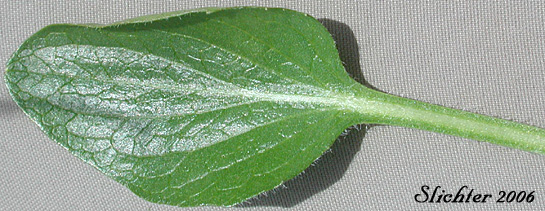 -
-  -
- 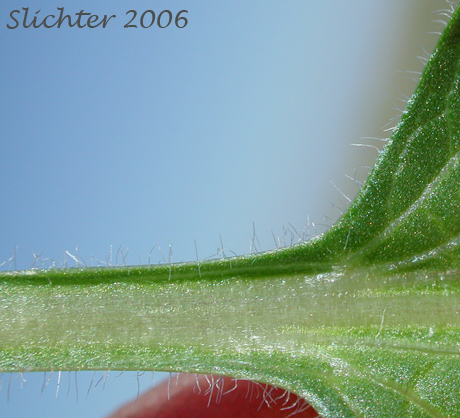
Closeups of the upper
(l) and lower (r) leaf surfaces of a leaf from the plant seen in the photograph above.
The breadth of the leaf is fairly typical of those usually seen in the
gorge. Note that the petioles and leaf margins have
some spreading hairs although the upper surface tends to be mostly glabrous.
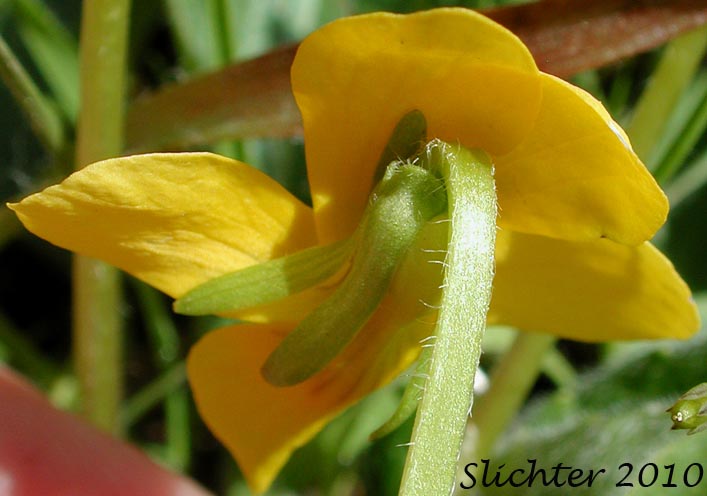 -
- 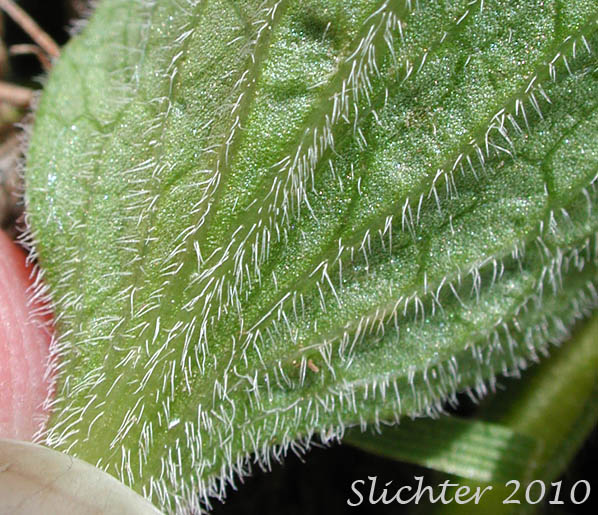 -
- 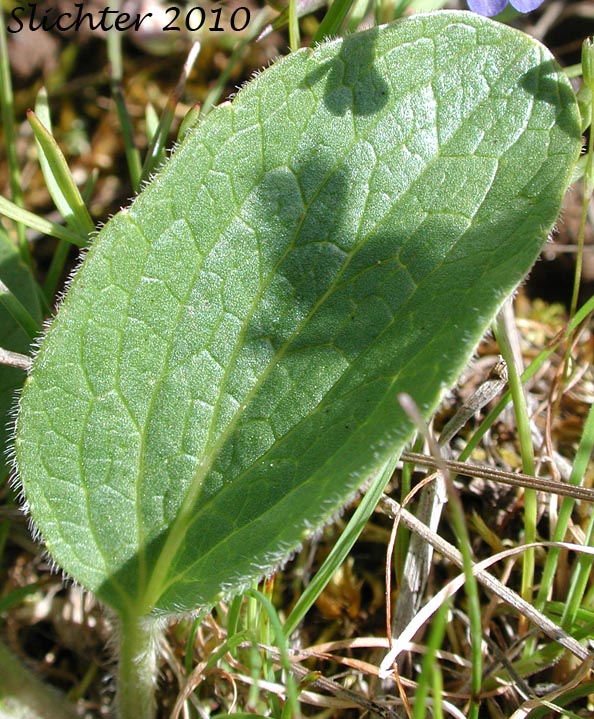

Additional close-ups of upland yellow violet as seen in grasslands beneath open oak woodlands high in the Labyrinth, mid-Columbia River Gorge..........April 15, 2010.
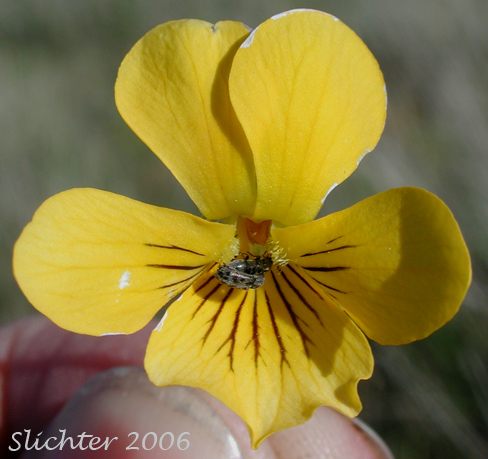 -
- 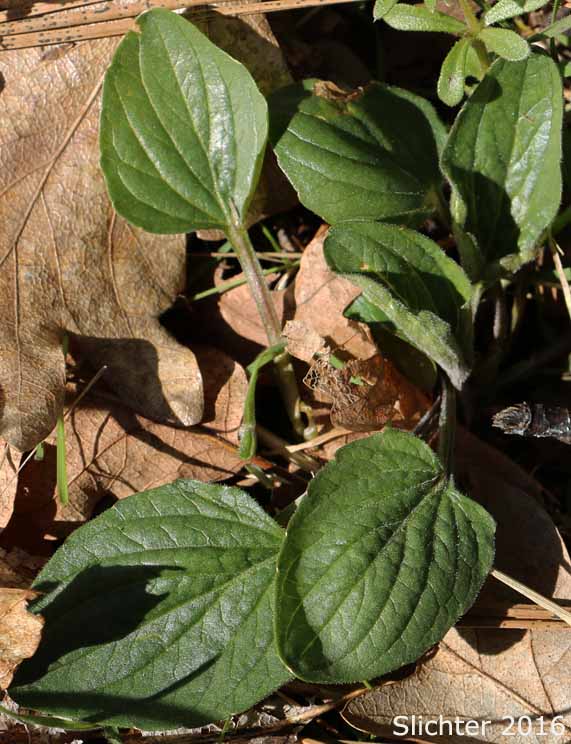
A close-up of the corolla (with visiting minute beetles, in the act of mating) as seen left at the crest of the Columbia Hills..........May 14, 2006. The photo at right shows the basal leaves of upland yellow violet as seen on the east side of Canyon Creek in the Klickitat Wildlife Area.........March 26, 2016.
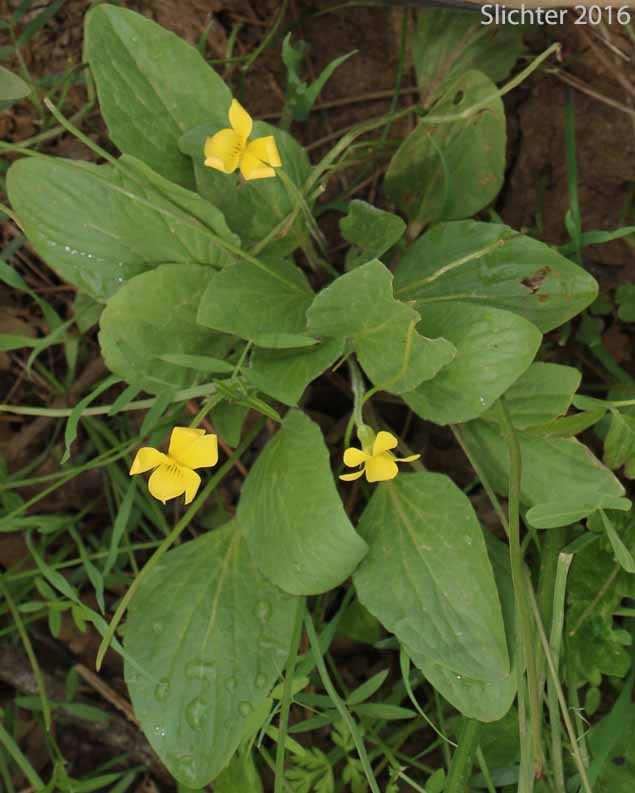 -
- 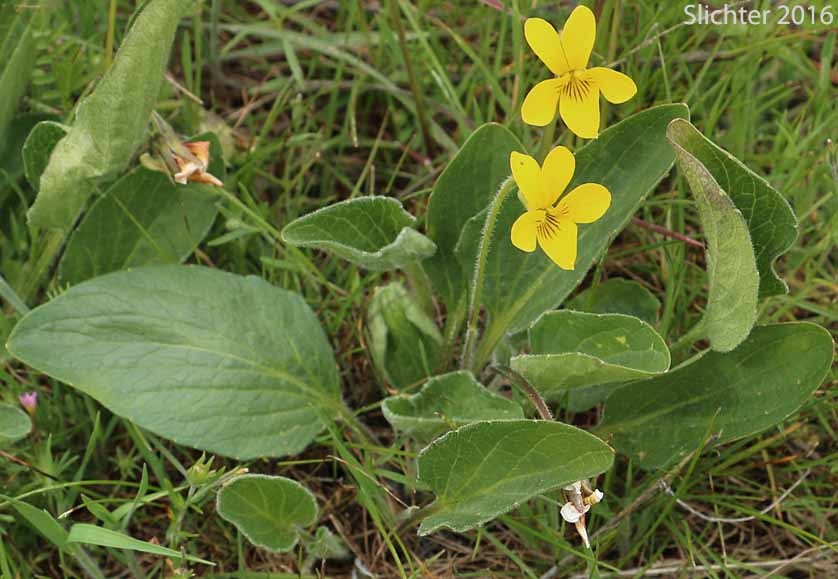
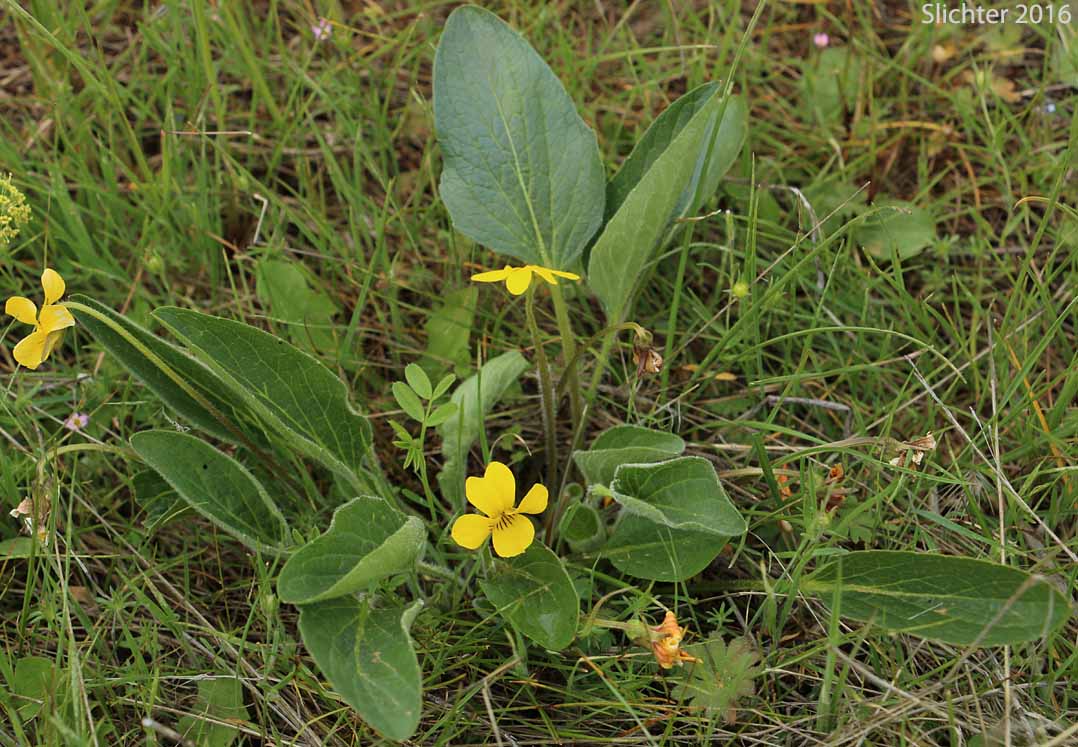 -
- 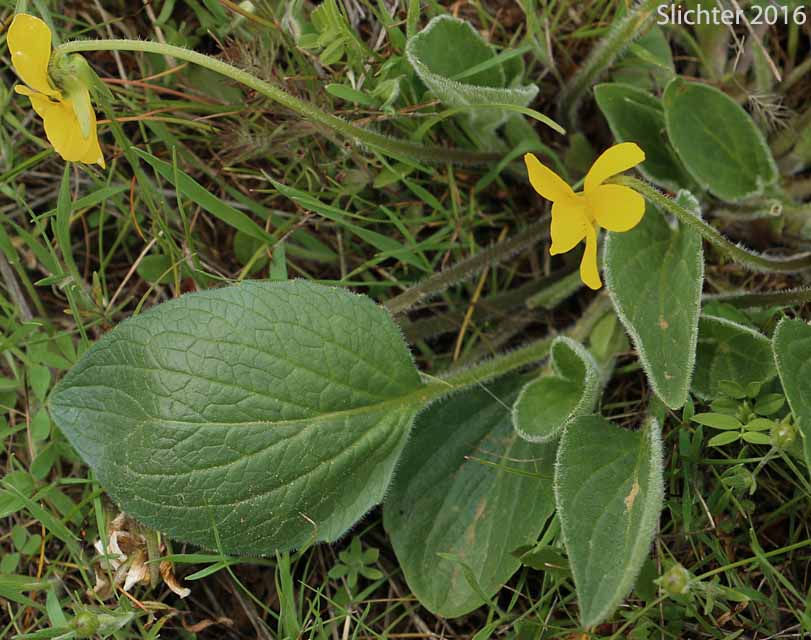
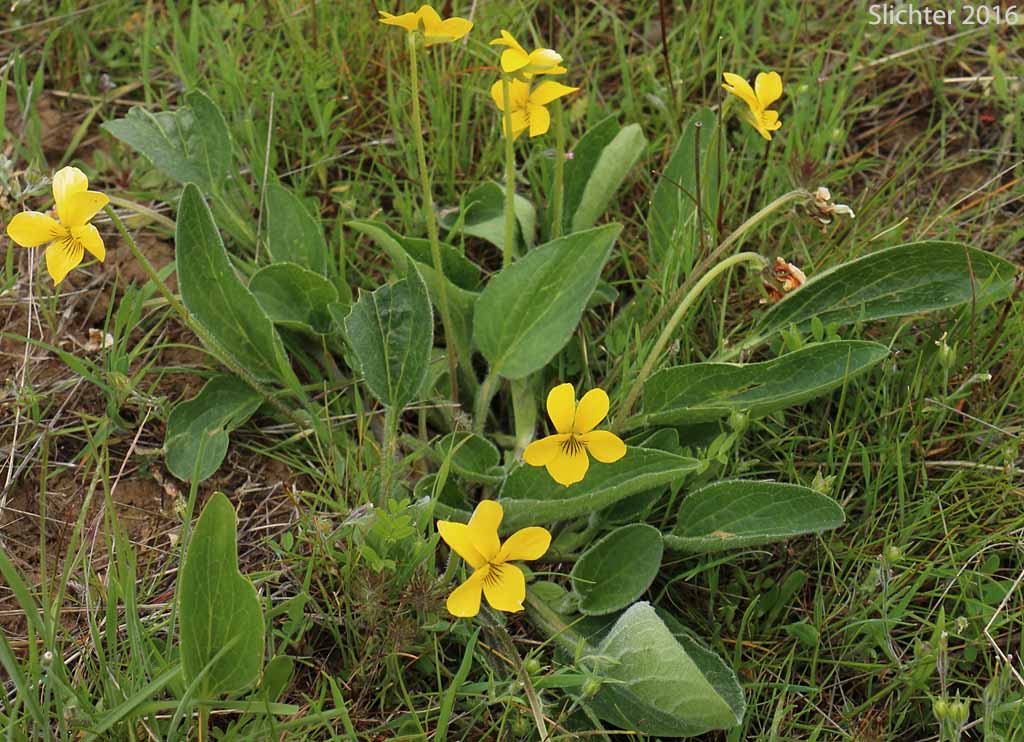
Upland yellow violet as seen high above Rowland Lake between the Labyrinth and Catherine Creek, southwestern Klickitat County, WA.......April 13, 2016.
Paul Slichter
 The
photo at right shows the wide leaf blade of canary violet from the crest of the Columbia Hills, north of Dallesport, WA........May 14, 2006. A closeup of the leaf is seen further below.
The
photo at right shows the wide leaf blade of canary violet from the crest of the Columbia Hills, north of Dallesport, WA........May 14, 2006. A closeup of the leaf is seen further below.